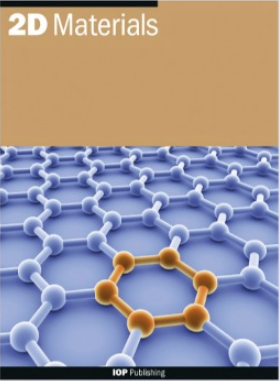Perspectives on 2D materials for hybrid and beyond-Si image sensor applications
IF 4.3
3区 材料科学
Q2 MATERIALS SCIENCE, MULTIDISCIPLINARY
引用次数: 0
Abstract
The complementary metal–oxide–semiconductor (CMOS) image sensor has become essential and ubiquitous in our daily lives as it is present in almost every pocket. As demand for compact, multifunction, and high-efficiency Internet of Things applications continues to rise, novel configuration designs and manufacturing methods, such as neural network integration and 3D stacking have been implemented to enhance the CMOS image sensor’s (CIS) performance. However, the progress of image sensors based on silicon CMOS technology would eventually be limited by the intrinsic optical, electrical, and mechanical properties of silicon material. This has led to the exploration of two-dimensional materials (2DMs) and the emergence of 2DMs as promising candidates for the next generation of optoelectronic devices. In this article, we discuss the current advancements and challenges associated with silicon CISs and the potential benefits of incorporating 2DMs in the image sensor. We highlight three critical opportunities for 2DMs, including Si CMOS/2DMs hybrid structure and direct growth techniques of 2DMs on Si for back-end-of-line integration, 2DMs-based neuromorphic photodetectors (PDs) and optical neural networks for in-image-sensor-processing, and curved image sensor based on 2DMs PDs for bionic detection. With the growing maturity of 2DM technologies, we anticipate that the device scaling and the increase of integration density of 2DM electronics in the image sensor will continue, leading to the development of highly efficient, compact, intelligent, and versatile 2DM image sensors in the near future.二维材料在混合和超越硅图像传感器应用中的前景
互补金属氧化物半导体(CMOS)图像传感器已成为我们日常生活中必不可少且无处不在的东西,因为它几乎存在于每个口袋中。随着对紧凑型、多功能和高效率物联网应用的需求不断增长,新颖的配置设计和制造方法,如神经网络集成和三维堆叠,已被用于提高 CMOS 图像传感器(CIS)的性能。然而,基于硅 CMOS 技术的图像传感器的发展最终会受到硅材料内在光学、电学和机械特性的限制。因此,人们开始探索二维材料 (2DM),并将 2DM 作为下一代光电器件的理想候选材料。在本文中,我们将讨论与硅 CIS 相关的当前进展和挑战,以及将 2DM 纳入图像传感器的潜在好处。我们强调了 2DM 的三个关键机遇,包括用于后端集成的硅 CMOS/2DM 混合结构和 2DM 在硅上的直接生长技术、基于 2DM 的神经形态光电探测器 (PD) 和用于图像传感器内处理的光神经网络,以及基于 2DM PD 的曲面图像传感器,用于仿生检测。随着 2DM 技术的日益成熟,我们预计 2DM 电子器件在图像传感器中的器件扩展和集成密度的提高将持续下去,从而在不久的将来开发出高效、紧凑、智能和多功能的 2DM 图像传感器。
本文章由计算机程序翻译,如有差异,请以英文原文为准。
求助全文
约1分钟内获得全文
求助全文
来源期刊

2D Materials
MATERIALS SCIENCE, MULTIDISCIPLINARY-
CiteScore
10.70
自引率
5.50%
发文量
138
审稿时长
1.5 months
期刊介绍:
2D Materials is a multidisciplinary, electronic-only journal devoted to publishing fundamental and applied research of the highest quality and impact covering all aspects of graphene and related two-dimensional materials.
 求助内容:
求助内容: 应助结果提醒方式:
应助结果提醒方式:


